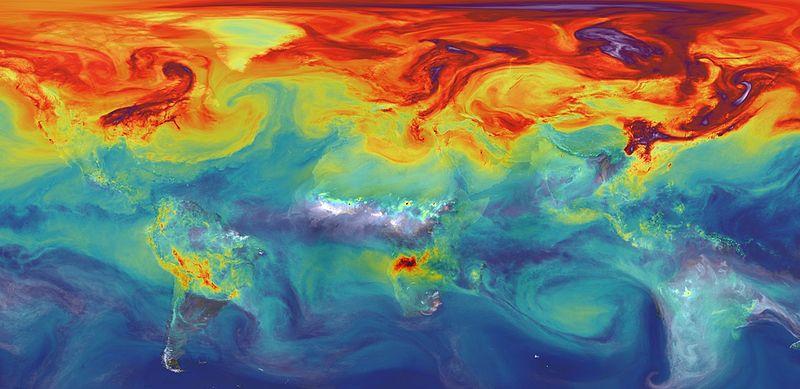Two statements from the Beehive have drawn attention to the government’s aims to tackle climate change, reducing emissions and paving the way for a carbon-free New Zealand.
One of the statements reminded us that the US is back in the business of joining other countries in efforts to combat climate change.
This came from Prime Minister Jacinda Ardern, who said she had joined President Biden at a virtual Leaders’ Summit on Climate hosted by the United States overnight.
The summit, held for Earth Day, brought world leaders together to galvanise efforts to reduce emissions this decade and keep the shared goal of limiting global warming to 1.5 degrees Celsius above pre-industrial levels within reach.
“New Zealand welcomes the United States’ international leadership on climate change and sees this summit as an important opportunity to work collectively to drive effective global action on climate change,” Jacinda Ardern said.
New Zealand was asked to specifically participate in the climate finance session of the Summit.
Ms Ardern said New Zealand is a leader in this field: in pricing carbon through our emissions trading scheme; the introduction of mandatory climate-related financial disclosures; and our decades-long work to end fossil fuel subsidies.
“We used the Summit to call on others to follow New Zealand’s lead and do the following four things: price carbon, make climate related financial disclosures mandatory, end fossil fuel subsidies, and finance adaptation,” Jacinda Ardern said.
“Now it’s time for us all to act.”
New Zealand has set the 1.5 degree limit at the heart of its domestic climate change legislation, the Zero Carbon amendment to the Climate Change Response Act.
“We continue to call for ambitious global action to reduce emissions and ensure a just transition to a low-emissions future,” Jacinda Ardern said.
“Our Pacific neighbours have identified climate change as the single biggest threat to the livelihoods, security and well-being of the peoples of the Pacific. Our collective goal, here at this summit and beyond, has to be making commitments to limit global warming to 1.5 degrees above pre-industrial temperatures,” Jacinda Ardern said.
The other statement drew attention to the efforts being made to involve New Zealand in a space mission aimed at measuring methane emissions.
New Zealand’s first government-funded space mission has taken a “giant leap” with the announcement that Auckland University’s Te Pūnaha Ātea-Auckland Space Institute is the permanent host of the New Zealand-based mission control centre for a global methane-tracking satellite.
“MethaneSAT is a really exciting opportunity to showcase New Zealand’s science and research expertise on the world stage, while making a significant contribution to climate change by mapping agricultural emissions of greenhouse gases. It’s great to see Auckland University, with the help of Rocket Lab, playing such a key role” says Research, Science and Innovation Minister Megan Woods.
Mission Operations Control Centre (MOCC) for the mission will be managed by Rocket Lab. Once it is running smoothly, it will be transferred to Te Pūnaha Ātea-Auckland Space Institute as the host.
“This international partnership will accelerate our capability in our rapidly growing space sector, increase our reputation for future space missions and provide vital data to support our own climate change policy,” Megan Woods said.
“The mission will see the New Zealand Space Agency partner with one of the world’s leading environmental NGOs, The Environmental Defense Fund, which will also include a team of leading New Zealand atmospheric science and remote sensing researchers led by NIWA’s Dr Sara Mikaloff-Fletcher.”
In addition to its agricultural emissions research, the New Zealand science team will work with the US based science team that’s leading the mission’s science on methane emissions from the oil and gas sector. The US team is led by the University of Harvard in close partnership with The Smithsonian Astrophysical Observatory.
The statement recalls that the Ministry of Business, Innovation and Employment (MBIE) in 2019 signed a partnership agreement with United States-based environmental organisation, the Environmental Defence Fund (EDF) and its subsidiary, MethaneSAT LLC to enable New Zealand to participate in the mission.
MethaneSAT is a state-of-the-art satellite designed to detect global methane emissions with unprecedented accuracy. The MethaneSAT satellite is unique because it can measure over a large area and focus on specific targets.
In November 2019, the government announced that it will collaborate with the Environmental Defense Fund on the MethanSAT mission. This included a $26 million investment, made up of:
- $18 million investment in a Mission Operations and Control Centre, funding from the Strategic Science Investment Fund.
- $6 million over four years Atmospheric Sciences Programme, funded from Catalyst: Strategic
MethanSAT is expected to be launched in late 2022.
Rocket Lab will initially establish and operate the Mission Operations and Control Centre, for approximately the first 12 months of the mission.
University of Auckland’s Te Pūnaha Ātea-Auckland Space Institute will then take over the hosting of the Mission Operations and Control Centre. Rocket Lab will work closely with the University of Auckland during the transition, and will provide post-handover consultation to the university if required.
University of Auckland was chosen as the New Zealand host of the MOCC following a Call for Proposals.
Dr Sara Mikaloff-Fletcher of NIWA will lead the New Zealand-based science team using the satellite’s data to better understand agricultural methane emissions. Dr Mikaloff-Fletcher has built a multi-institution, multi-discipline research team comprising some of New Zealand’s strongest expertise in atmospheric science and remote sensing.
The Beehive statements can be found here –
* New Zealand’s first official space mission announces ‘mission control’
* Leaders’ Summit on Climate to raise ambition on climate action
Sources: Prime Minister’s Office and Minister of Research, Science and Innovation












